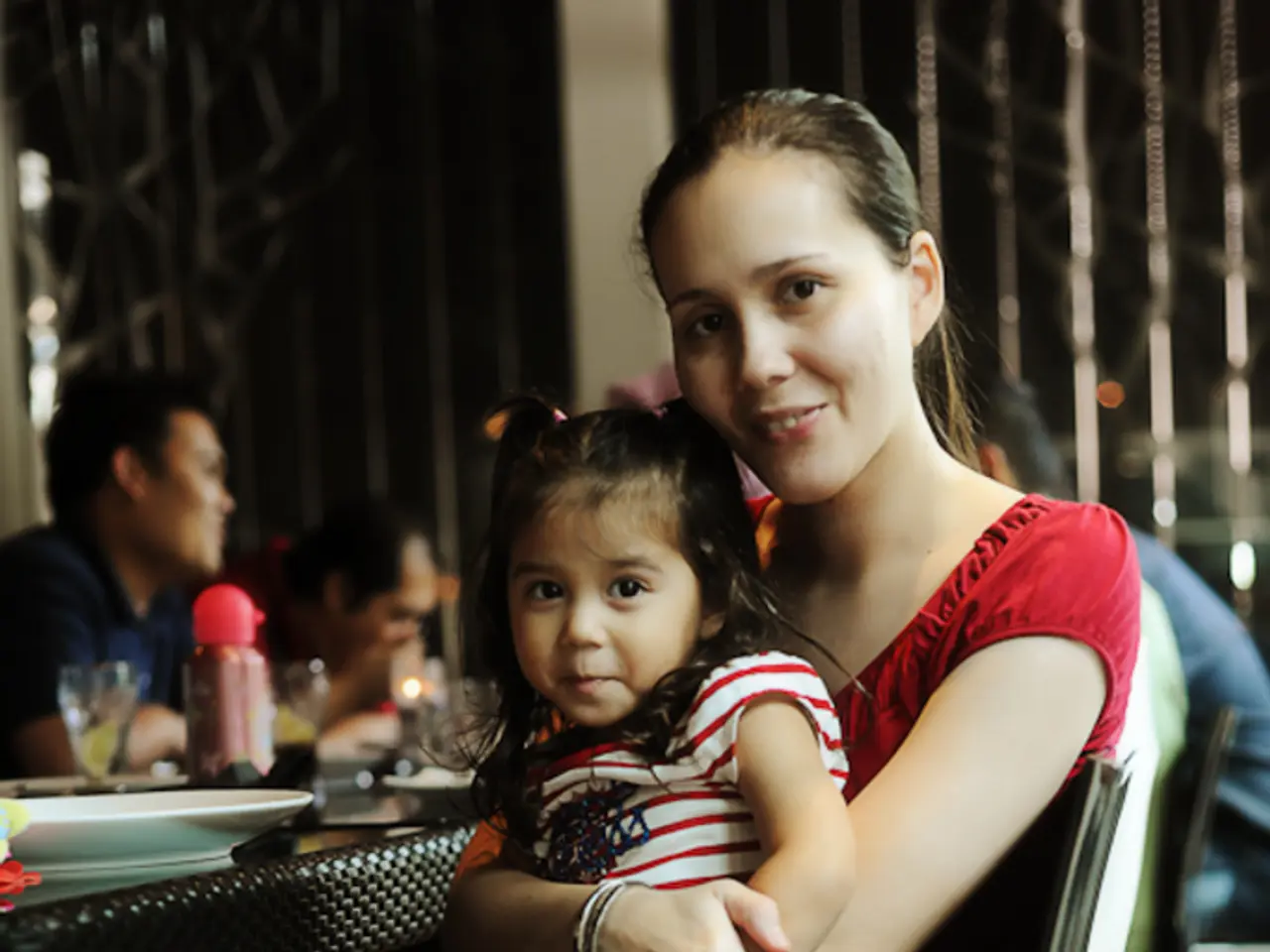Parental Leave for Childcare Illness: Mothers Tend to Stay Home More Frequently Than Fathers for a Sick Child
In Germany, data from Barmer health insurance company shows a significant disparity in the distribution of child sick pay applications between mothers and fathers. In 2023, the insurer registered a total of 890,000 payment days for child sick pay, with 663,000 falling on women and 227,000 on men. This trend, evident over several years, suggests a persistent gender imbalance in family care responsibilities.
Barmer received 297,000 applications for child sick pay from mothers in 2023, compared to 108,000 from fathers. This difference of 189,000 applications is a reflection of societal roles, labor market participation patterns, and parental leave policies that influence caregiving behavior.
One key reason for this disparity lies in traditional caregiving roles and part-time work. Mothers in Germany are more likely to work part-time or reduce their working hours during their child’s early years, aligning with eligibility criteria for parental benefits like Elterngeld. This predisposes mothers to more often take leave, including for child sickness, as they balance work and childcare responsibilities.
The German parental benefits system, including Elterngeld and Elterngeld Plus, encourages mothers to take longer periods of leave or part-time work after childbirth, while fathers are incentivized to take fewer months (minimum father participation is often only 2 months). This creates a situation where mothers naturally handle more childcare needs, including sick days.
Unlike maternity leave, fathers do not have a statutory right to paternity leave or equivalent paid time off specifically for child sickness. Though fathers can access parental leave and child sick days, cultural norms and employer practices result in fewer fathers applying for child sick pay compared to mothers.
Workplace and cultural norms also play a role in this disparity. Despite recent policy efforts, societal expectations in Germany often place primary caregiving duties on mothers, leading to a greater use of child sick pay benefits by mothers. Employers and workplaces may also implicitly expect mothers to shoulder these responsibilities more than fathers.
Single parents can claim more extensive benefits (e.g., up to 30 days of child sick leave per child), and since single mothers statistically represent a larger portion of single parents, they account for a higher proportion of claims.
In summary, the combination of parental leave framework incentivizing mothers’ involvement, employment patterns favoring mothers’ caregiving roles, and social-cultural expectations about parenting in Germany explains why child sick pay applications are predominantly by mothers rather than fathers. Fathers tend to participate less due to lesser statutory entitlements specific to child sickness leave, workplace culture, and traditional role assignments.
Barmer health insurance company, with around 8.3 million insured members, is one of the largest health insurance companies in Germany. Parents can apply for child sick pay at their health insurance company, even if they work from home. Child sick pay typically amounts to 90% of the lost net wage and is available for every child insured under the statutory health insurance scheme who is under 12 years old.
As of January 1, 2024, each parent can claim child sick pay for up to 15 days per year, an increase from the previous 10 days. Parents with more than two children can receive child sick pay for up to 35 days, and single parents with more than two children for up to 70 days.
References: 1. German Parental Leave System 2. Child Sick Pay in Germany 3. Single Parents and Child Sick Pay in Germany
- The significant difference in child sick pay applications between mothers and fathers in Germany can be traced back to societal roles, labor market participation patterns, and parental leave policies that influence caregiving behavior, as shown in the German Parental Leave System.
- The increased availability of child sick pay days for parents in Germany, from 10 days to 15 days per year as of January 1, 2024, aims to reduce the gender imbalance in family care responsibilities, aligning with the goal of promoting health-and-wellness and family-health for everyone, not just mothers.




